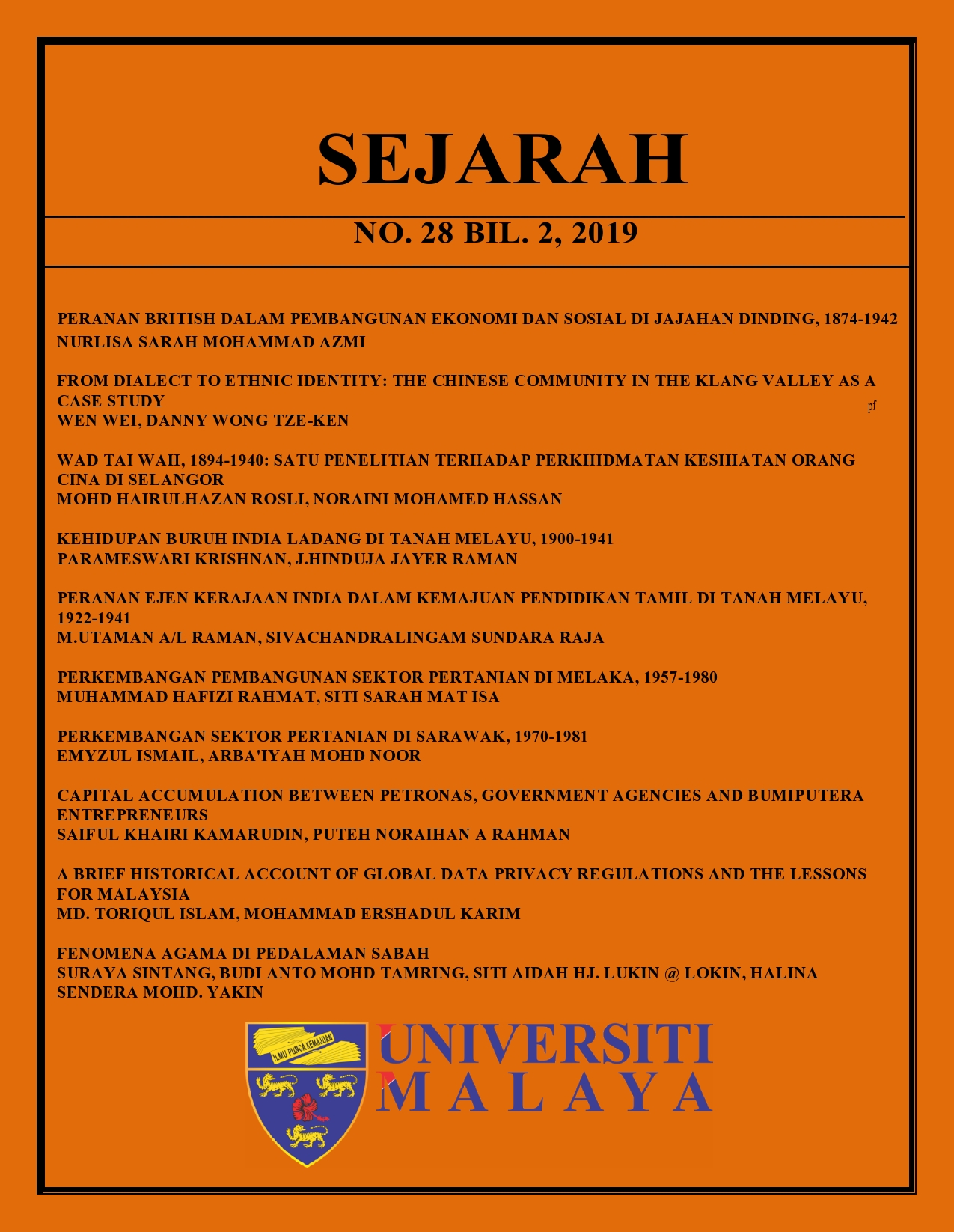PERANAN EJEN KERAJAAN INDIA DALAM KEMAJUAN PENDIDIKAN TAMIL DI TANAH MELAYU, 1922-1941
DOI:
https://doi.org/10.22452/sejarah.vol28no2.5Keywords:
Ejen India, Sekolah Tamil, Pendidikan Tamil, Kod BuruhAbstract
This article will discuss the role played by the Indian Government Agents in the progress of Tamil schools in Malaya between 1922 and 1941. This research is using qualitative method based on archieval data. The findings show that the agents were those who were appointed by the Governor-General of India under Section 7 of the Indian Emigration Act 1922 to protect the Indians outside India. A total of six Agents were appointed, namelyD. Arulanandam Pillai, R. Subbaya Naidu, M. Kunhiraman Nair, K.A. Mukundan and Subimal Dutt. The article begins with the early history of Tamil schools in Malaya before and after the 20thcentury. The development of Tamil education is traced to the establishment of four types of schools, namely Tamil missionary school, Tamil committee school, government school and estate school. In addition to this, the importance of the Labour Code and the views of high-rank officials are also evaluated. Subsequently, problems relating to teachers, textbooks, facilities, administration and management are also studied in the article. The presence of Indian Agents offered hope to the development of Tamil schools and Tamil education in Malaya. In short, this article examines the role of the Agents of the Government of India in finding solutions to problems affecting Tamil schools and their efforts in developing Tamil education.
Received: 29 October 2019
Reviewed: 21 November 2019
Accepted: 28 December 2019






